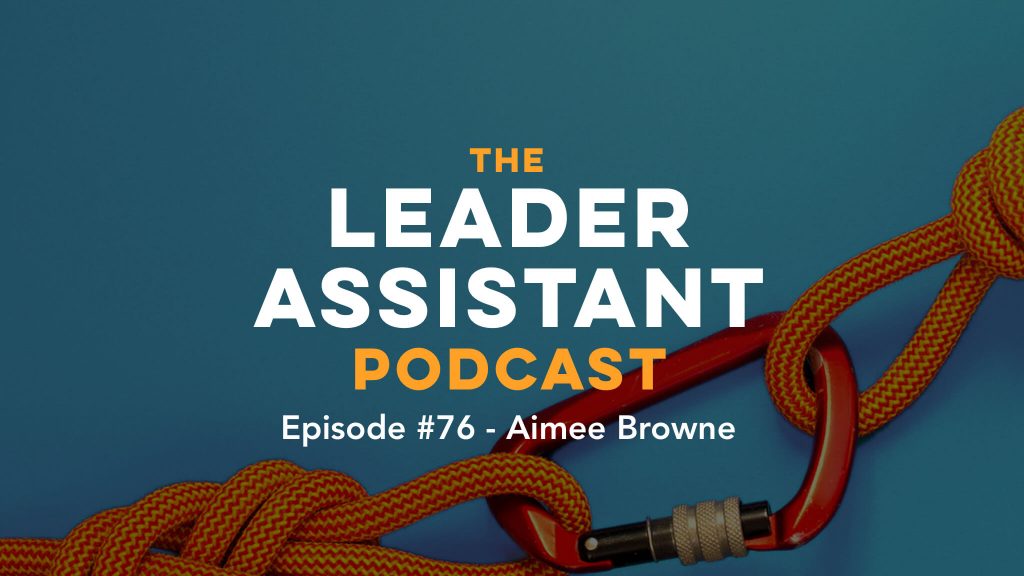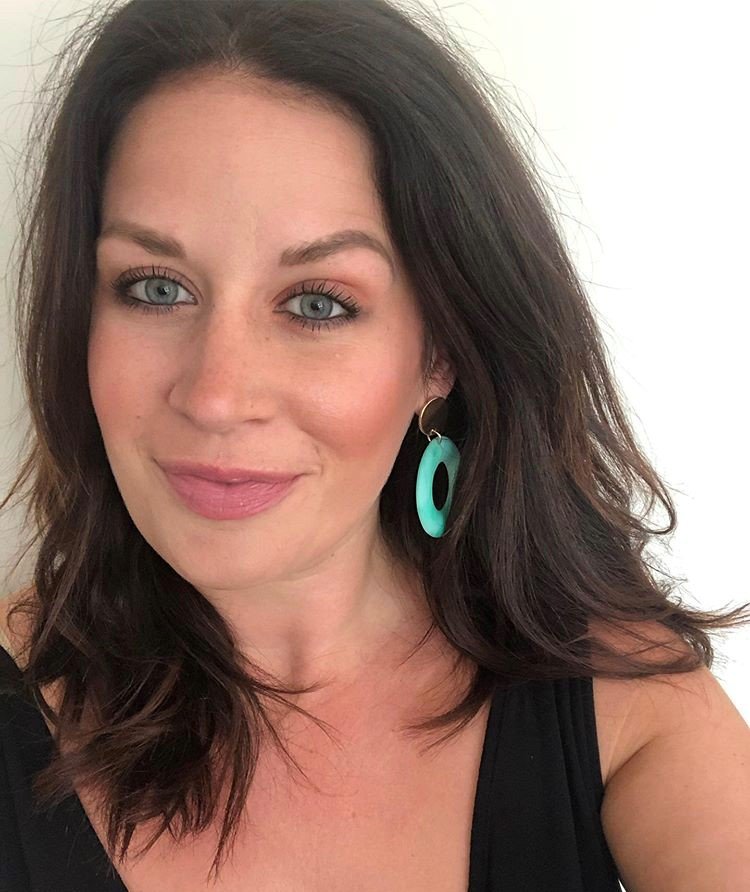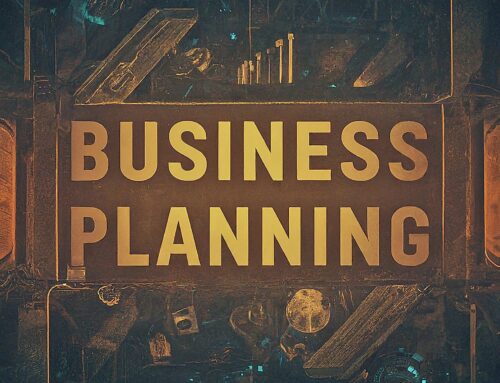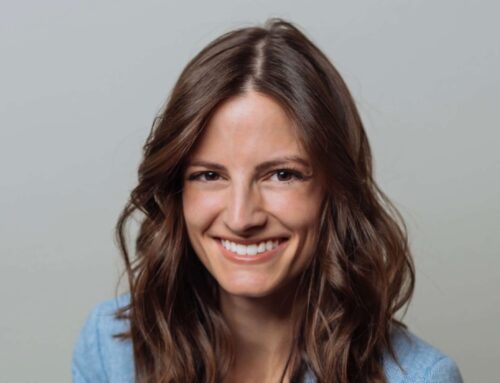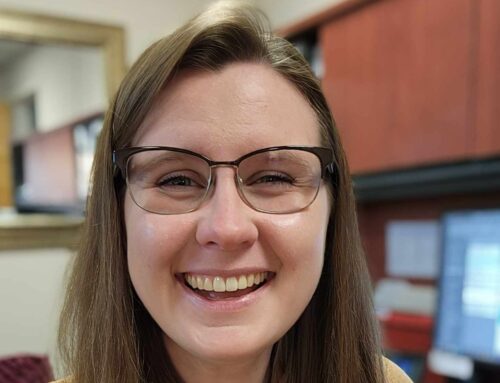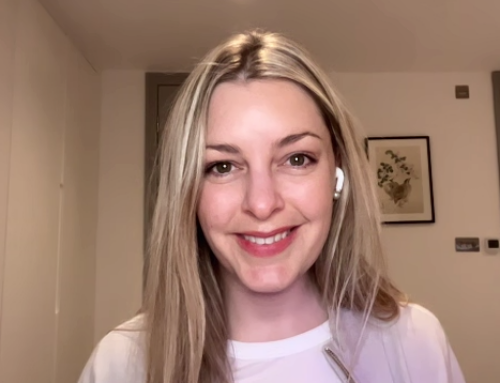Aimee Browne is an EA with over 15 years of experience, and is passionate about helping others succeed in business and life.
Aimee shares openly about her struggle with burnout, depression and anxiety, and how difficult it was to ask for help and work toward recovery. She then shares some self-care tips that have helped her since her burnout. I really appreciate Aimee’s honesty and vulnerability in this episode, and I hope she inspires you to “put yourself first” and spend more time on self-care before you burnout.
NOTE: I recorded this episode about a year ago, and Aimee has since shifted her focus a bit, but she still has the same passion and energy, so reach out to her via the links below to say hi and learn more about how she can help!
CONNECT WITH AIMEE
SPONSOR FOR THIS EPISODE
Check out LifeSquire.com – an Assistant Resource Center focused on matching executives with assistants, and creating relationships – where both sides thrive. They would love to help you find the perfect job or work with you to enhance your skillset.
LEADER ASSISTANT MEMBERSHIP
Check out the Leader Assistant Membership for ongoing training, coaching, and community.
LEADERSHIP QUOTE
The most powerful leadership tool you have is your own personal example.
– John Wooden
ABOUT AIMEE
Aimee Browne is an Executive Assistant with over 15 years experience, predominantly in the UK retail sector. She’s also founder of The Mindful Assistant Academy, and a Time Strategist & Business Mentor, helping online service based business owners reclaim their time and regain control in their business.
THE LEADER ASSISTANT BOOK
Download the first 3 chapters of The Leader Assistant: Four Pillars of Game-Changing Assistant for FREE here or buy on Amazon here.
JOIN THE COMMUNITY
Join the Leader Assistant Slack Community here, or the Facebook Group here for bonus content and to network with other assistants who are committed to becoming leaders!
SUBSCRIBE
Subscribe to The Leader Assistant Podcast so you don’t miss new episodes!
You can find the show on Apple Podcasts, Spotify, Google Podcasts, Pandora, and Stitcher.
Join my email list here if you want to get an email when a new episode goes live.
LEAVE A REVIEW
If you’re enjoying the podcast, please take 2 minutes to rate and review the show on Apple Podcasts here. Each review helps me stay motivated to keep the show going!
—
EPISODE TRANSCRIPT
Aimee Browne 0:00
I’m Aimee Browne. Today’s leadership quotes comes from John Wooden. The most powerful leadership tool you have is your own personal example.
Podcast Intro 0:12
The Leader Assistant Podcast exists to encourage and challenge assistants to become confident, Game Changing leader assistant.
Jeremy Burrows 0:25
Thanks for tuning in to Episode 76. Hey friends today’s sponsor is life squire. They were founded by a former executive assistant looking to create a healthier relationship between current assistants and their clients. They found their niche and placing assistants in positions where you and your executive can thrive. If you’re an executive assistant, they would love to help you can visit their website at lifesquire.com/leaderAssistant, or call them at 405-889-4430 to find out how they can help you lifesquire.com/leaderassistant. Hey, leader assistants. Thanks so much for tuning in to The Leader Assistant Podcast. It’s your host, Jeremy Burrows. And I’m super excited today to be speaking with Aimee Browne. Aimee, how’s it going?
Aimee Browne 1:17
Really great. Thank you. Thanks so much for having me.
Jeremy Burrows 1:20
And what part of the world are you in right now?
Aimee Browne 1:23
So I’m in England, in the UK, or Leicester, in England?
Jeremy Burrows 1:29
Okay, so what time is it
Aimee Browne 1:32
is 22 In the afternoon, and I’m recording this on my lunch break.
Jeremy Burrows 1:38
And then for those of you that don’t know, I’m in St. Louis, Missouri. And it is 7:40am. And I’m recording this before I get in the car and go to work. So it’s fun to talk to somebody on the other side of the world. Yeah, David. So let’s talk about what your very first job was, and maybe what skills you learned in that role that you still use today.
Aimee Browne 2:00
Okay, gosh, so I was an office junior, I think it was about 20 years ago, I don’t even think I got tax. No, could have been 20 years ago. I’m 35. It was about 18 years ago, because I first met my husband. So yeah, it was an office Junior It was bought a small web startup business. So I was the only admin function there. And really got involved in basic accounting, some search engine optimization, you know, answering the phone sales calls, you name it, I sort of got involved. And I think that’s where my love of multitasking. And that sort of natural ability came to light. So yes, spinning plates, that which is obviously what we do bath now.
Jeremy Burrows 2:56
So then, when did you transition to becoming an executive assistant? Or I think your your personal assistant for a while as well.
Aimee Browne 3:04
Yeah, so there’s, there’s PA and EA rolls over in the UK. Sometimes they predominantly more in London, but they they can be the same role. I came out of the office Junior role and went into an assistant to a PA role. And the guy who worked for was was quite a fiery fellow feel like and she walked out. So I got the opportunity to be to step into her shoes as a PA from quite a young age. I think I was 19 at the time. And his wife had been a PA in London. And she kind of just trained me on the job. And it went from there really. So I’ve been a PA or an EAS since since that time, I suppose in true EA terms in terms of being more strategic and project lead that has been over the last the last 10 years. Really.
Jeremy Burrows 4:08
That’s awesome that you get to kind of get that early experience in the training from somebody that said before, kind of hands on training.
Aimee Browne 4:16
Yeah, absolutely. I think being chucked in at the deep end sometimes is the best way to learn. And yeah, I learned so much from her and also working with that type of art. It’s such a young age you know, he was he was quite challenging. And yeah, try not to take that personal and and just growing that thick skin from a young age was has definitely held me in good stead throughout my career.
Jeremy Burrows 4:48
What do you think would be the number one struggle that you’ve had as an assistant and that you’ve heard from other assistants?
Aimee Browne 4:55
Well, so my my struggles are And you’ll you’ll hear more about this as we talk about sort of my mental health, my mental health issues is that is the perfectionist and the control that I struggle to. I don’t know so so something even really simple if the alignment or just not being able to let anything go unless it’s absolutely perfect. Sometimes you’ve got to make that decision best about what the actual content is, and what the message is you’re trying to deliver, versus what it looks like, or getting it right in that respect. And I find it very difficult to let that go, I can’t let anything go out if it’s, I mean, we all have standards, but I think I just sort of took it to the next level. And since during these events, I have met a lot of assistants that are really struggling with confidence. And I find it crazy, because that’s one thing I’ve never really struggled with, I know I’m really good at my job. And they’re working in these amazing positions, these high powered, incredible powerful people. And they don’t believe in themselves. They don’t they believe they’ve got there by chance. They don’t believe in what they’re doing day by day, or or they’ve had been in positions where they don’t feel valued, or they’ve been spoken to in a certain way. And now their confidence is so low, they haven’t haven’t got the choice. They don’t feel like they’ve got the choice to move out of those positions, or that they’re worthy of the position that they hold at the moment. And so two quite different vibe.
Jeremy Burrows 6:42
Is there something that assistants should do or that you would encourage them to do when they feel that undervalued and lack of confidence?
Aimee Browne 6:51
Yeah, so I think that they, you know, we do so many tasks within a week, and so many amazing achievement, you just kind of naturally do it, and you naturally get on with it. And I don’t think we take a step back and look at what we have achieved that we can go by, I’ve run this event, I’ve done this, I saved this. I’m really reflect on what you’ve done each day, what was great, because we’re very good at just looking at the negative instead of all the amazing things that we’ve achieved. And accomplishment builds confidence. So just being grateful and practicing gratitude and reflection on a regular basis, I think helps build build that confidence, and believing in yourself. Like talking to yourself in a kind way, not berating yourself because you’ve you’ve done something that you thought was wrong. I mean, a lot of the time, something that you thought was massive, has no impact on anybody else whatsoever. And nobody else would even notice that. But we give ourselves a really hard time about it. So if you do have those times, it’s just sort of rationalizing how you feel, and just taking a step back. So yeah, I think reflection of your achievements, when we’re when we’re moving through life and our jobs at such a pace can really help.
Jeremy Burrows 8:16
That’s great. So what about a community of other assistants? How, how would you recommend other assistants kind of reach out and network together? And then also, just maybe talk about the importance of being in a community of other assistants who get what you are going through?
Aimee Browne 8:35
Yeah, absolutely. So that was one of the reasons I started the mindful assistant. You know, where we can be. Not everybody has a large community of assistants within their business, you can be alone role. So yeah, nobody really gets what we do a lot of the time, because we just do it. And it’s it’s just natural. So I created that community. So you know, you could speak out about how you feel, and you could rationalize those thoughts that you have in and somebody go, gotcha, I feel like that tear in. And you can just support each other through those struggles. So, you know, I created the platform, I’ve got it on LinkedIn, Instagram, and Facebook. And they’ve all got different different dynamics and different engagement, but really safe supportive platforms. And then link LinkedIn especially is really great. I found a massive amount of support. With assistants out there, just chatting and getting to know each other learning about each other’s businesses, each other’s goals, jobs roles. And then if you’ve got the confidence to find things that are going on in your area, there’s so many amazing associations and networks now, and a lot of it can be found online so I just encourage you to reach out because a lot of them are feeling exactly the same as you are Um, and you know, you can pair up and go to go to these events together.
Jeremy Burrows 10:05
So, would you be willing to share a little bit about, you know, your mentioned mental health and your struggle with depression and where you are today? And maybe how that influenced the mindful assistants? You know, birth?
Aimee Browne 10:18
Yeah, sure. Um, so it started for me about three years ago, I didn’t know what anxiety was, I didn’t really know, didn’t really get the whole on off work with stress, I didn’t really understand it. And I think looking back on it now that I had a lot of symptoms that I was living with, for quite a long time, the inability to switch off the tight chest, the lack of my sleep was diminishing, like I struggled to really switch off at night, my head was just going round and round in circles. Again, if I saw like a mistake, or something like that, it was just like a pain in my stomach, where it would hurt me emotionally. Or if I was trying to articulate how I felt quite a lot to in meetings, or, to my exec, my emotions were like, really bubbling on the edge. I had physical side effects like achy jaw, I just, I just couldn’t switch off, I couldn’t switch off from work at all. I had no boundaries, you know, I would work later come in earlier. And then, and then be thinking about it at home, email, and myself. I’ve got to do this. And I couldn’t just put up so tight. And I didn’t, I didn’t realize that I was feeling like that. I just thought that was normal. And I was really giving myself a hard time. You know, I’m a working mum that works full time. I’ve got two children, why can’t I cope? There’s loads of other women that are in this position, not persistence, in these high pressure role wasn’t the same as me. And I just thought such a failure. It was it was just so so hard, though to the doctors and make that step. My director at the time actually said, you know, I think you need to go to the doctors, you just not yourself. And to tell somebody that I couldn’t cope. When you are in that position, when you know, you’re the go to in your department, or the face of your Exec of your company, you’re trying to like hold the house together, be the mom, that friend is just, it just feels like the worst feeling in the world. And you know, I have never taken any sick leave at that point. So to even to think that to have a day off on the site. Oh my God, just no way. And how could we possibly cope without me? Which we know isn’t true. But yeah, so it was a I remember sitting in the doctor’s waiting room, and it was just like, I don’t even know what to say to this guy. What am I even gonna say to the doctor, I don’t even know. But as soon as I stepped through that there was it was just like a floodgate. And I ended up taking three months, sick leave. In the end, it really, really took hold of me. Because I was then signed off and I was left at home with my racing mind. I wasn’t used to just sitting in calm, I couldn’t even relax at the weekend. You know, there was always something to be done. So, yeah, a really bad bout of it was diagnosed severe anxiety, I had mild depression, I suffered really bad panic attack. And through treatment and time off. So I had CBT treatment at that time, and amazing support from my employers. I managed to then get a face return back to work. So that was yeah, just just about three years ago. And I’d sort of learned some practices. Over that time, you know, meditation, I was reading books and things like that. But then I think when I started to get better, you kind of just fall back into that pace of life again, you know, it’s like when you go on a diet, you lose weight, you feel great, you get back in again, so great. And you’re back in the office, and you’re back in that cycle. And I think I was definitely more conscious about how I was feeling I didn’t revert completely back to my old way. But I definitely wasn’t taking care of myself as much as I should have. And so I moved out of that position. And then last year, it sort of started to creep in again. And once you’ve experienced something like that, there’s definitely a fear factor that’s there for you. Like, am I going to spiral am I going to go down that hole again? So that’s quite difficult. ought to, to work with as well. So I think I’ve been, I was sort of fighting it off towards the end of last year came into this year. And yeah, January, you know, but I’m feeling good. And then out of nowhere, out of nowhere, it just hit me. And I was really, really trying to hold it together at work with various strategies, but I was it, I think it was too far gone. And then I woke up one day at home. And I was literally just in a dark hole of depression, which was something I had very mild depression, three years prior, that this was just something else. And I just, I totally just didn’t want to be alive. I felt that I’m really optimistic person. I’ve always been really positive napkins. You know, I love life. And I love more. I was just exhausted, exhausted, tired with life, I’d with the crippling sadness, that that, that felt like, my husband had to physically get me out of bed. It was a horrendous time, it was really horrendous. And so to feel like that, and then managed to get myself out of that place. Just feels like the most incredible feeling. I never want to go there again. And that has, and I don’t want anybody else to ever experience that. So that is why I created the month system I knew I wanted to do I brainstorm what is it I know, it’s about assistance, because I love our profession. And, and literally as cheesy as it sounds, I woke up one morning and I was like right mindfulness system that that is what it is. So within three days, I think I’d created the brand, right, my first post, I registered my domain name. And then it’s it’s all just sort of gone from there. So I wanted to create a community to inspire Empower assistants, all over the world with my content to take care of themselves better. My tagline is, who’s taking care of you, you’re serving your exact, you’re coming home and you’re taking care of your family, you want to be the best friend, the best daughter, son. And then bright right at the bottom of the pile is you. It’s like who is taking care of you. And it’s we’ve got to tip the scales, you’ve got to put yourself first and I think the traction that the mindfulness system has had since the start just speaks volumes about how people are feeling. And even to me, it’s just like, It saddens me, it really started with me that we’re in these amazing positions. And we just have the most fantastic community and we’re not helping each other, we’re not helping ourselves. So yes, I wanted to create the safe and supportive community. And then it’s sort of just doubled from that, in that I’ve been doing speaker events and workshops for assistant communities and how they work together, that perhaps these coping strategies, systems self love. It, just, yeah, it’s just took off. And now I’m really pleased that I’m working one to one coaching with assistants to you know, really, really make some transformations for their mindset as well. So yeah, quite quite the, quite the journey on the last six months.
Jeremy Burrows 18:52
Wow, that’s amazing. appreciate you sharing and your, your passion for helping others avoid the same same situations. You know, that’s really how a lot of these things starts how my my website started was I burned out and I was just running too hard and not taking care of myself. And so I was like, You know what, I need to help as many executives and assistants as I can not make the same mistake. And so yeah, so appreciate you stepping up and starting the mindful assistant and, you know, helping other assistants all around the world.
Aimee Browne 19:29
Thanks, you too, Jeremy. I think that’s that is what if anything, this, this really needs to show that you know, you and I there’s lots of assistants that do have these struggles, it’s really normal. It’s not a weakness you feel when you’re going through these things. You feel like it’s you’re failing, you feel like you’re really weak. You feel you can’t cope all of these things that anybody that tells you they they don’t or haven’t experienced those things. When in a small measure, I wish, I don’t believe Yeah. We, we it’s just normal and it is normal. And I think that’s, that’s the thing. Like, mental health has become so big because everyone’s just like, oh, yeah, that’s how I’ve been feeling. Well, you know, what if we just talk about it more? We talk about it like, yeah, I’ve had a cold like, I’ve talked about God, yeah, I’ve got this, then, you know what, we can just help each other get better. And, you know, look at look at what you’ve created with a leader assistant. You know, no one’s gonna look at you and go God, he’s off the bar now he’s, he’s not doing great or you still can be ambitious, you can still be create a business on the side, you can be an amazing assistant, you know, I’ve, I’ve come back stronger than ever. So anybody that tells you that mental health makes you weak? If
Jeremy Burrows 20:54
Yeah. So what are what are a couple practical, maybe every day self care tips that you recommend and like to share with assistants.
Aimee Browne 21:07
Um, so I think one of my most powerful rituals is definitely my mornings. Now, I hear all the time all morning. So I’m just not a morning person. It’s not for me. But it’s how you are choosing to make yourself. If you go to work at nine and you get up at seven, then you know what, get up at five, I guarantee you will reap benefits from it. So I have sort of seven key components that form part of what I call my mindful morning ritual. And I dip into them, I don’t make it too rigid, because then that just becomes a stick to beat yourself with when you don’t do all of them or you haven’t got time. And sometimes it feels it depends on how you’re feeling on the day. So gratitude, I practice that what am I thankful for that day. I meditate. Like, I know, it’s so so hard if you’re in the place where your mind is really busy. But stick with it. Even if you do five minutes, you’re bound to get thoughts come into your head, but just try and let them pass and just take that moment of calm. There’s some fantastic apps around now. So they are really, really useful. And I use them in and around my working day. Sometimes if I just need a breather, just take my headphones and my phone, get a meeting room, take a moment of calm, go for a walk, move. So again, I’ve sort of been doing morning motivated, I get up at five o’clock in the morning. But that’s because I leave the house at seven and go on a bit of a speed walk or I speak to one of my followers or just moving your body is even minimum of like 1020 minutes a day really, really helps create good endorphins. My other part is inspire. As you know, I’m a big lover of your podcast, Jeremy. And I love to utilize the spare time I have within a day so my commute time I used to read or don’t read or listen to audiobooks, or podcasts or just anything that inspires me when power is me or I can learn from just to use that time to to the benefit. JOY What really sparks joy for me within a day. So is it a really great music? A great song that I love? Or can you get on the phone to your best friend? What is it that uplifts you because every day, whether it’s something really small or something really big, you should spark joy in your life. And a fan so I love an affirmation. It just is something that you’re struggling with. I don’t know. For example, I could have been a bit nervous about coming and speaking to you today. And I could just go Amy, you are worthy of all that you desire. You’re fearless, you know your strength is greater than your struggle walls or whatever it is. I just write myself an affirmation and it really just makes you believe what you’re what you’re feeling. And then take an action so something’s bothering me within a day, just taking action. So I just try and like dip into any of those pools in the morning and just set my intentions for the day. What do I want to do the day? How can I dip into one of those pots? Can I do it now? I set some time aside and that time is your own. You know it’s really hard to control anything else that goes on in your day because we are you know we do SAS and we’ve got to be there for Exec. So it’s just a really good way to set the tone for the day. That’s my my sort of biggest takeaway onwards I
Jeremy Burrows 25:02
love it. I love it except for the 5am part, but you know?
Aimee Browne 25:06
Well, I do say on my, on my platform, you know, I leave the house at seven. So I’m rushing really, really anxiety like, I can’t stand it. I wish they missed something, I forgot something. That’s that was my cup of tea. So, yeah, getting up at 5am just suits me down to the ground. I’m like, I can do a little bit of everything, I can move slowly get ready in ample time. So the children have that type of thing. So whatever time works?
Jeremy Burrows 25:38
Yeah, totally. So what would be you know, you mentioned during the day, you try to take, you know, a little walk or, you know, lock yourself in a conference room, or whatever it is to try to kind of hit reset, what is the tip you have for kind of doing that in the middle of just constant interruptions throughout the day?
Aimee Browne 25:59
I have to say, so out of my all of my self care practices, I think this isn’t the one where I fall down the most. It is really difficult, as you know, to try and break away. But it’s just about being disciplined with yourself and being really aware of how you feel. So I try to take a lunch. And even if I can’t take a lunch at lunchtime, I will try and go and get a breath of fresh air. or Yes, come up to a meeting room and use an app or go and find a colleague that I know will just strapped and brighten my day. Yeah, constant interruptions. I just try and push back and say, you know, if you need something, you know, when do you need it for and try and just push back. So I’m working within my timelines and not theirs. Yeah, it’s just about this. Good working through your overwhelm and taking time taking time out for you, even if it’s just five minutes, just being aware of how you feeling, I think,
Jeremy Burrows 27:02
yeah, it’s great. So what makes an assistant a leader,
Aimee Browne 27:08
I think what makes an assistant a leader is being able to lean in round the table, voice your opinion, and be confident in your decisions. And just share your knowledge with with other assistants as well putting yourself out there. And networking really makes a difference, because you can sit in here being so insular. And actually you have so much to experience to draw on and to share with everybody.
Jeremy Burrows 27:39
Awesome. If you could snap your fingers and instantly give all assistance more of something, what would it be?
Aimee Browne 27:47
Confidence, Vishal? I think there’s a big, a big lack of confidence where, because a lot of assistants didn’t sort of, I don’t know, go into uni and do a particular course, for example, they’ve a lot of us have just sort of got into this role and evolved and grown. And then they’re like, God, how did I get here? And this imposter syndrome of them thinking that they don’t deserve their own where they have been in those positions, is rife. So believing in themselves? About all of those years of experience? Absolutely. count for something.
Jeremy Burrows 28:28
Yeah. So there, I’m sure there are lists or their assistants listening? Who are kind of have some of the symptoms you described earlier are struggling with depression and struggle struggling with anxiety? How would you encourage those assistants that are kind of like, Man, I’m really, really need to change something? How would you encourage them to be vulnerable, and open and share their maybe need for some time off and get help?
Aimee Browne 28:59
Uh, firstly, I would say, Be quiet, be kind to yourself. These are illnesses, and they aren’t weaknesses. You know, try and share with somebody that’s close to talk to somebody about how you’re feeling in the first instance. And just accept that. Yeah, it is an illness and you need to go and see a doctor and see somebody get some expert help. And quite quite a lot of the time when you have those conversations, it’s just such a massive relief. You can you can really, just take the weight off your shoulders. So yeah, giving yourself permission and the time to heal and get better. And just accepting that it will pass and you can get better. There’s lots of us out there like like me like you that have, you know, we’re living proof that there is like the other side of how you’re feeling and it’s just giving you sort of time to work through are on finding those other coping strategies and systems and rituals that work for you.
Jeremy Burrows 30:07
Great. Well, Amy, thank you so much for taking time out of your day in the middle of your workday and just sharing your vision and your passion to help other assistants with the mindful assistant. been great talking with you, and how can we support what you’re doing? And where can we find you online?
Aimee Browne 30:25
Likewise, thanks for having me, Jeremy. So I’m over on Instagram, and also Facebook, and over on LinkedIn, as well as Aimee Browne. So yeah, just come engage, talk support, support each other. Yeah. And take care of you.
Jeremy Burrows 30:45
Awesome, love it. Well, I’ll put those links in the show notes. And thanks again for chatting and we’ll talk soon.
Aimee Browne 30:52
All right. Thanks so much, Jeremy. Have a great day. You too.
Jeremy Burrows 30:56
Thanks again, Amy for a great interview. Thank you for being honest and vulnerable. If you’re listening and struggling with burnout, anxiety, depression, or any other mental health illness, please seek help, please reach out. Find professional help. Don’t try to do it alone. And hang in there. You can check out Amy’s links to connect with her at leaderassistant.com/76 for the show notes leaderassistant.com/76 Talk to you soon.
Unknown Speaker 31:46
Goburrows.com

